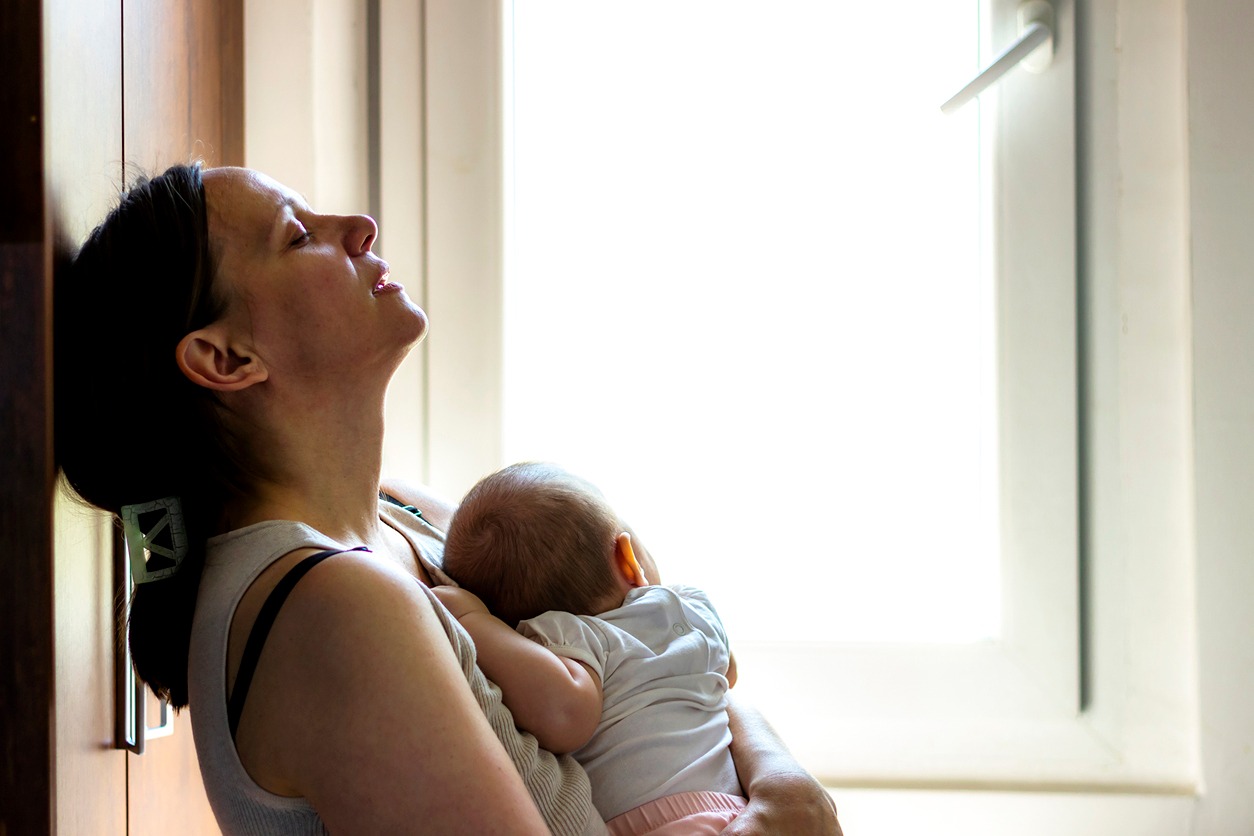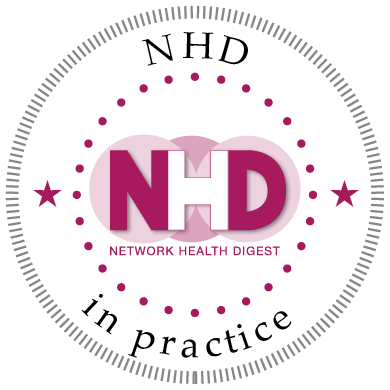Emma writes...
Thoughts, resources and comment from the NHD Editor.
World Health Day: Healthy beginnings, hopeful futures

That’ was the theme for this year’s World Health Day, which was celebrated on 7th April.
Maternal and newborn health was the focus of the campaign this year, with efforts to encourage governments and health communities around the world to prioritise women’s long-term health and well-being and end preventable maternal and newborn deaths.
This global annual event is vital in raising awareness of these important topics. According to the WHO, each year almost 300,000 women lose their lives due to pregnancy or childbirth.(1,2) Approximately two million babies are stillborn and more than two million die in their first month of life.(1) These are tragic figures that are largely preventable.
Whilst there are targets for improving maternal survival by 2023, 80% of countries are off track to meet them, with one in three countries off target to meet those for reducing newborn mortality rates.(1,3)
Key factors in maternal and infant mortality rates
Some of the key factors in maternal and infant mortality rates include poverty, birth and delivery complications, infection, severe bleeding and high blood pressure during pregnancy (pre-eclampsia and eclampsia).(2,3)
However, other factors also play a role. Adequate healthcare support and quality are significant aspects, which are vital for managing risks for mothers and babies. Maternity service quality and access can vary significantly around the world, but all women and child need this support.
How are things closer to home?
Latest data published by the UK Government on 4th March 2025, highlight that ‘stillbirth, infant mortality, neonatal mortality and post-neonatal mortality rates in England have remained relatively stable in recent years’.(4) However, there have been minor increases in neonatal and infant mortality rates between 2021 and 2023.(4) Currently, there are 3.9 deaths per 1,000 live births.(5)
The update also reported on the inequalities in infant mortality across England, with rates being higher than average for England in the West Midlands, Yorkshire and the Humber, as well as in the North West.(4)
Data shared in January this year by MBRRACE-UK* showed mortality rates for women who died during or soon after pregnancy decreased slightly in 2021-23, compared with women who died between 2020-225. In the UK between 2021-23, 281 women died during pregnancy or within 42 days of the end of pregnancy.(6)
The research has been led by the Oxford Population Health's National Perinatal Epidemiology Unit, and the findings include data on all women in the UK who died between January 2021 and December 2023 during pregnancy or within six weeks after their pregnancy had ended.
*Mothers and Babies: Reducing Risk through Audits and Confidential Enquiries across the UK.
Maternal and infant mortality causes in the UK
According to the RCPCH*, the majority of neonatal deaths are due to perinatal causes, which include preterm birth, predominately associated with either congenital malformations or maternal health.(5) Neonatal deaths account for 70-80% of all infant mortality in the UK.(5) Post-natal infant deaths may occur due to a range of causes, including unexplained death in infancy (SUDI).(5)
Maternal social circumstances have a significant impact on infant mortality, with greater levels of maternal deprivation correlating with an increased risk of infant death. Poorer maternal health during pregnancy, lower uptake of breastfeeding and safe infant sleeping positions are more associated with mothers from more deprived backgrounds.(5) Improvement in these factors can play a key role in reducing the risk of infant mortality.
Data from MBRRACE-UK shows thrombosis and thromboembolism were the leading causes of maternal death during or up to six weeks after the end of pregnancy in the UK between 2021-23.(6)
Cardiac disease was the second most common cause of maternal death followed by COVID-19.(6) Some women may know that they have cardiac disease before they become pregnant, but it can be diagnosed at any stage in the pregnancy or postpartum. Cardiac disease in pregnancy can include congenital, acquired and inherited cardiac conditions.(7) Pregnancy can place more stress on the cardiovascular system, which can exacerbate or reveal previously undiagnosed cardiac issues.
There is concern regarding the increasing incidence of maternal ischaemic heart disease, which includes myocardial infarction during pregnancy.(8) Deaths from cardiac disease during pregnancy have been attributed to a range of factors including increasing maternal age and more precise recognition of cardiac diseases by pathologists during postmortem.(8) However, several other factors impact cardiac health, which can be managed to reduce the risk of cardiac disease in women of childbearing age. These include obesity, smoking and diabetes.(8)
*Royal College of Paediatrics and Child Health
How can we reduce the risk?
The RCHCH have summarised ‘what good looks like’ to reduce the risk of infant mortality and improve maternal health. Nutrition and lifestyle support and advice are key aspects in reducing risk:
Improve preconception care, including maternal health and education
Optimising maternal physical and mental health and well-being from preconception, throughout pregnancy and into the postnatal phase is vital.
Particularly important for young mothers who are at higher risk of premature or low birth weight babies, which have the highest mortality rate.
Smoking, alcohol and substance misuse, poor nutrition and obesity before and during pregnancy are all associated with adverse child health outcomes.
Folate supplementation to prevent birth defects is a key part of high-quality preconception care.
Infant feeding and care
Breastfeeding is a protective factor for infant survival, particularly for infants born preterm; therefore, it is vital that women are supported to breastfeed.
Universal midwifery and health visiting services are one of the key ways in which new mothers receive education and support in managing their new baby, including supporting breastfeeding and safe sleeping positions.
Tackle poverty and inequalities
Deaths in infancy are strongly associated with preterm birth, fetal growth restriction and congenital abnormalities. This disproportionally affects the most deprived families in society.
Adapted from Infant mortality – RCPCH – State of Child Health
Maternal mental health matters

The ‘baby blues’ and feeling overwhelmed are often considered common, or not unusual things for some women to experience whilst expecting or once they have given birth. And many women suffer in silence. However, these experiences can be indicative of more serious mental health issues.
This is an increasing issue in new and expectant mums.(9)Reported by NHS England in 2024, during 2023 more than 57,000 women accessed Specialist Perinatal Mental Health Services (SPMHS) for support and treatment. An increase of a third on 2022 figures.
About one in four women experience mental health difficulties during pregnancy (antenatal) or after birth (postnatal).(10) Maternal mental health issues can occur before or after a baby arrives. Whenever they occur, they can be serious but treatable conditions.(10) If left untreated, mental health issues can have a long-lasting impact on the woman, child and the wider family.(9)
Common mental health issues Taken from Maternal Mental Health in the UK: Antenatal & Postnatal Support - Window to the Womb
Antenatal:
Antenatal depression – Persistent sadness, hopelessness, or withdrawal
Antenatal anxiety – Excessive worrying, racing thoughts, panic attacks
Perinatal OCD – Obsessive, distressing thoughts about the baby’s safety
Birth trauma fears – Anxiety over labour and delivery
Postnatal:
Postnatal depression (PND) – Persistent low mood, tearfulness, and loss of enjoyment in life
Postnatal anxiety – Intense worry, panic attacks, or feeling constantly “on edge”
Postpartum psychosis (rare but serious) – Confusion, hallucinations, or extreme mood changes (requires urgent medical attention)
The Maternal Mental Health Alliance (MMHA) has worked for many years to raise awareness of maternal mental health and campaigned for better maternal mental health services (MMHS). These services differ from SPMHS, in that they ‘provide lifesaving and life-changing care for women experiencing moderate mental illness directly linked to their maternity experience’.(11) According to MMHA, ‘MMHS were introduced to fill a gap between specialist perinatal mental health teams and services supporting more common perinatal mental health problems (e.g. NHS talking therapies)’.
A recent review of MMHS in England by MMHA has shown that their services are struggling to meet the level of need, with many having long waiting times. MMHA is calling on the government to invest further in these vital services. Read more here Maternal Mental Health Services in England | Maternal Mental Health Alliance
What resources are available to nutrition professionals?
Many healthcare professionals are involved in the care of women who are planning to become pregnant, are pregnant or who’ve given birth. However, dietitians and nutritionists can be part of the multidisciplinary team who provide care and support.
BDA maternal and fertility dietitians - This group represents HCPC registered dietitians with a specialist role or interest in maternal health and nutrition, pregnancy and female and male fertility. The group promotes the specialist role of dietitians in multidisciplinary teams and many members of the group are also actively involved in research projects within the field of maternal health and fertility. Find out more about the group here Maternal and Fertility Specialist Group - BDA.
BDA Pregnancy and Diet factsheet- The BDA offer information via a fact sheet, which is intended to support those considering pregnancy and those already pregnant in making healthy lifestyle choices. Read more here Pregnancy and diet - BDA.
British Nutrition Foundation – Nutrition for Pregnancy - The BNF provides a range of information on eating well during pre-conception when pregnant and whilst breastfeeding. It also covers topics such as exercise during pregnancy, managing morning sickness and dietary considerations such as which foods to avoid during pregnancy, vegetarian/vegan diets and fasting during Ramadan. It also shares advice on eating well on a budget. Get more info here Nutrition for Pregnancy - British Nutrition Foundation.
NHS Health Start - This is a government-funded scheme to support families who need help to buy healthy food and milk. If a woman is more than 10 weeks pregnant or they have a child under the age of four, they may be entitled to get help to buy healthy food and milk. More info here Get help to buy food and milk (Healthy Start). In Scotland, there is a different scheme known as Best Start Grant and Best Start Foods - mygov.scot.
MIND - Postnatal depression and perinatal mental health - This site offers information and useful contacts regarding maternal mental health: Postnatal depression and perinatal mental health - Mind.

Emma has been a Registered Dietitian for over 18 years and has experience in adult and paediatric dietetics. She has been the Editor of NHD for nine years, steering the editorial content and supporting the production process.
Emma currently works in industry.
Emma Coates, RD
References
WHO (2025) World Health Day 2025: Healthy beginnings, hopeful futures. World Health Day 2025
WHO (2024) Maternal mortality. Maternal mortality
WHO (2022) Child mortality (under 5 years). Child mortality (under 5 years)
Office for Health, Improvement and Disparities (2025) Official Statistics. Child and maternal health profiles, statistical commentary: March 2025 update. Child and maternal health profiles, statistical commentary: March 2025 update - GOV.UK
RCPCH (2025) Infant mortality. Infant mortality – RCPCH – State of Child Health
MBRRACE-UK (2025) Data brief: Maternal mortality 2021-2023. Maternal mortality 2021-2023 | MBRRACE-UK | NPEU
North West Maternal Medicine Network (2024) Cardiac Disease in Pregnancy Guideline. MMN-Cardiac-Disease-in-Pregnancy-Guideline-v0.2.pdf
Milton Keynes University Hospital NHS Foundation Trust (2021) Guideline: Cardiac disease in Pregnancy. Cardiac-disease-in-Pregnancy.pdf
NHS England (2024) News: Record numbers of women accessing perinatal mental health support NHS England » Record numbers of women accessing perinatal mental health support
Window to the Womb (2025) Maternal Mental Health in the UK: Antenatal & Postnatal Support. Maternal Mental Health in the UK: Antenatal & Postnatal Support - Window to the Womb
Maternal Mental Health Alliance (2024) Maternal Mental Health Services in England. Maternal Mental Health Services in England | Maternal Mental Health Alliance

